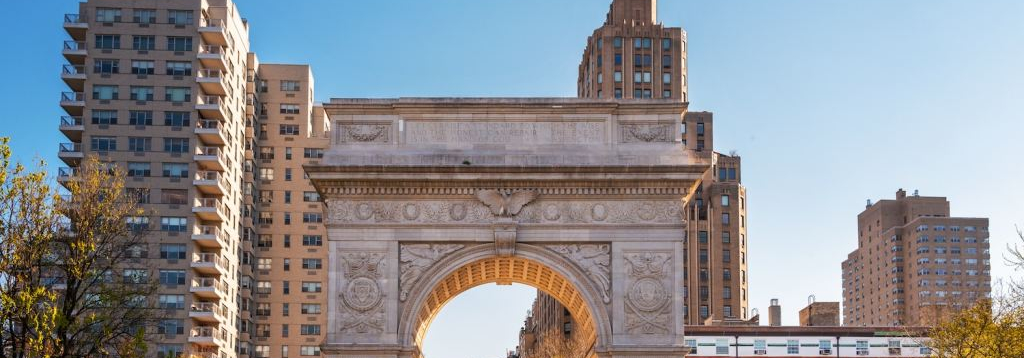Students who are interested in attending a liberal arts college have a lot of options — just over 200 private institutions in the U.S., not to mention the liberal arts programs at many larger universities. All liberal arts schools specialize in a multidisciplinary curriculum, which can be a good choice for intellectually curious students with varied academic interests. Read on to learn about the 25 liberal arts schools that are popular with IvyWise students and what each has to offer.
What Are Liberal Arts Colleges?
Liberal arts colleges (LACs) focus on undergraduate studies, though some do offer graduate-level courses. The faculty at LACs are teachers first and researchers second. LACs offer more traditional programs and majors that emphasize an interdisciplinary curriculum — students are exposed to a broad range of disciplines within the social sciences, humanities, and sciences. Many liberal arts colleges even have rigorous STEM programs.
Additionally, LACs prioritize diversity and inclusion by improving college access to low-income students and underrepresented students. The student bodies at these private colleges are often small — and the liberal arts in general value diverse perspectives. Therefore, it’s in the best interest of each individual school to have as diverse a student population as possible.
Why Is Liberal Arts Education Important and Reputable?
The value of a liberal arts education includes learning many versatile skills that benefit students both personally and professionally. Liberal arts programs emphasize critical thinking, analytical reasoning, and problem-solving skills. Students are encouraged to question assumptions, analyze information, and develop their own informed perspectives. Graduates of LACs also tend to have the following characteristics and skills:
- Communication skills
- Adaptability
- Cultural awareness
- Intellectual curiosity
- Preparation for leadership roles
Liberal arts graduates are versatile and often able to pursue a wide range of career paths. Employers value the diverse skill set and adaptability that liberal arts education provides, making graduates well-suited for roles in business, government, non-profit organizations, and more.
Who Should Consider a Degree in Liberal Arts?
Despite the great benefits students receive from a liberal arts education, it is not the best fit for everyone. If you find yourself asking, “Should I go to a liberal arts college?” consider if you tend to make connections between subjects — to engage in interdisciplinary thinking and research. For example, does a reading of Shakespeare’s “Macbeth” spark interest in learning more about how witchcraft was perceived in the Renaissance period? Or perhaps it makes you think of the interpretations of “Macbeth” on stage throughout the centuries. You are then connecting the text (literature) to history, culture, and/or theater.
An ideal liberal arts student has a broad range of interests and may even be undecided on a major. The great thing about LACs is that you are encouraged to explore your interests, and you can eventually narrow them down because some of the course offerings are highly specific. If you enjoy reading and writing, you might also be a fit for a liberal arts education, since you will be doing a lot of both.
How Difficult Is It to Transfer Between Top Liberal Arts Colleges?
A common characteristic of liberal arts colleges is a small student body — typically from 1,000 to 3,000 students. This can make transfer admissions tricky, even if you are transferring from another liberal arts school. Therefore, it’s important to have some clarity about why transferring is the best option for you. Thorough research is the key to finding schools that truly meet your needs and goals where you can thrive and succeed.
An IvyWise counselor states, “Because the transfer process is so laborious, it’s really important to understand why you want to transfer, and I recommend my students make a pro/con list prior to even researching schools. Once you’ve made your pro/con list and you know why you want to transfer, then start doing your college research.”
Top liberal arts colleges tend to be highly competitive and selective, so prospective students — whether they’re transfer or first-year — need to submit the strongest application possible. It’s worth noting, however, that the transfer application process is different from the process for first-time college applicants. The admissions committee will be more focused on your college GPA as a transfer student, so your transcript should show that you excel at college-level coursework. Additionally, you need to demonstrate that you’ve made an impact at your current school through your college essays.
Learn more about the transfer admissions process on our Just Admit It! podcast.
What Are the Selection Criteria for Top Liberal Arts Colleges?
Each college ranking website has different ways of ranking top liberal arts schools, but the criteria below are important factors.
Academic Reputation and Rigor
As previously mentioned, liberal arts colleges focus on undergraduate education, and the professors prioritize teaching over research. This means that the institution’s resources and attention are dedicated to creating an exceptional undergraduate experience, which includes a rigorous curriculum across a broad range of disciplines. Students at LACs have access to research opportunities, internships, and other hands-on experiences in addition to their coursework.
Faculty Qualifications and Expertise
Liberal arts colleges often attract highly qualified and dedicated faculty members who are experts in their fields. These professors are not only passionate about their subjects but are also committed to teaching and mentoring students. The close relationships between students and faculty contribute to a challenging and supportive academic environment.
Student-to-Faculty Ratio and Class Sizes
The small student population means that class sizes and student-to-faculty ratios are also small. This ensures that students receive personalized attention from professors. This intimate learning environment fosters meaningful interactions, encourages active participation, and allows for more in-depth discussions.
Resources and Facilities
Top liberal arts colleges typically offer a range of resources and facilities to support the academic and personal development of their students. While specific offerings may vary, common features include libraries, laboratories and research centers, art and performances spaces, recreational facilities, technology infrastructure, career services, financial aid packages, writing centers and academic support, community spaces, health and counseling services, study abroad programs, and alumni networks. Additionally, research opportunities at LACs tend to be less competitive than at larger schools.
Alumni Success and Outcomes
Top liberal arts colleges produce graduates that move on to highly successful careers or the rigors of graduate school. Many LACs have strong alumni networks that contribute to the overall reputation of the institution — you can typically find alumni resources on the schools’ websites. Successful graduates who have made significant contributions in various fields reflect positively on the college and may actively engage in supporting current students and the institution.
25 Popular Liberal Arts Colleges
These liberal arts colleges are popular among IvyWise students and are highly ranked nationally by multiple college ranking websites based on the selection criteria mentioned above.
Pomona College
Established in 1887, Pomona College is a prestigious private institution in Claremont, California, known for its commitment to academic excellence and a rigorous liberal arts education. Pomona College is part of the Claremont Colleges Consortium, allowing students to access a wide variety of resources across the consortium’s member institutions, enhancing the breadth of their education.
Harvey Mudd College
Another member of the Claremont Colleges Consortium, Harvey Mudd College in Claremont, California, places a heavy emphasis on STEM disciplines while also providing students with a well-rounded education in the humanities and social sciences. Established in 1955, Harvey Mudd produces graduates that are highly sought after in the STEM workforce, contributing to its reputation as one of the top institutions for undergraduate STEM education in the U.S.
Claremont McKenna College
Founded in 1946, Claremont McKenna College is our third Claremont Colleges Consortium institution on this list. Known for its strong focus on economics, government, and public affairs, Claremont McKenna College offers a well-rounded liberal arts education with an emphasis on practical skills and leadership development. Graduates go on to excel in various professions, including business, government, law, and academia.
Swarthmore College
Founded in 1864, Swarthmore College is part of the Tri-College Consortium, sharing access to resources and courses with Bryn Mawr, Haverford College, and the University of Pennsylvania. Popular majors at Swarthmore not only include areas of study within the liberal arts, but engineering and computer science programs as well. Students can also design their own major tailored to a special interest.
Haverford College
Located just outside Philadelphia, Haverford College is a private institution established in 1833. The school’s partnership with Bryn Mawr, Swarthmore, and Penn means that students get the small school experience with the curriculum and resources of larger schools. One unique aspect of the campus community is the Haverford Honor Code — a document created and administered by students that presents academic and social ideals and expectations. If the Honor Code is something that would be important to you, be sure to mention it in your supplemental essays!
Bowdoin College
Bowdoin College was chartered in 1794 in the coastal town of what is now Brunswick, Maine. The college places a strong emphasis on interdisciplinary studies, research opportunities, and community engagement. One unique research experience offered by Bowdoin is the coastal studies program offered at the Schiller Coastal Studies Center on Orr’s Island. The student experience is based on “The Offer of the College” — the outcomes of a Bowdoin education that were written by the college’s seventh president in 1906. Learn more about how to get into Bowdoin so you can benefit from its rigorous curriculum and diverse, intellectually curious student body.
Williams College
One of the oldest liberal arts colleges in the U.S., Williams College was established in 1793 in Williamstown, Massachusetts. Known for its rigorous academic programs, Williams offers a wide range of majors and a strong commitment to intellectual exploration in the liberal arts and sciences. In this spirit of exploration, students can design their own majors, take special classes, and pursue opportunities in emerging fields, experiential education, and/or off-campus study. Williams also offers limited programs for graduate students.
Wellesley College
Wellesley is a prestigious women’s liberal arts college in Wellesley, Massachusetts. Founded in 1870, Wellesley College is committed to promoting women’s leadership and empowerment, encouraging students to become engaged citizens and leaders in various fields. Wellesley College shares an alliance with Babson College and the Olin College of Engineering as well as options for cross-registering at MIT and Brandeis.
Amherst College
Established in 1821, Amherst College is part of the Five College Consortium that includes Smith College, Mount Holyoke College, Hampshire College, and the University of Massachusetts Amherst. Students take advantage of the open curriculum that allows them to structure their program to suit their interests. The 100+ organizations on campus encourage student participation and enhance the tight-knit, collaborative college experience.
Smith College
Smith College, founded in 1871 in Northampton, Massachusetts, is a private women’s institution known for its strong academic reputation. Along with Amherst, Smith College is part of the Five College Consortium. The inclusive community, campus resources, and diverse and rigorous courses provide an enriching experience for students. The open curriculum allows students to customize their academic journey.
Carleton College
Carleton College, founded in Northfield, Minnesota, in 1866, is known for its warm and collaborative community. The academic year is composed of three 10-week terms, so students at Carleton must be able to thrive in a fast-paced environment. Students can choose from among 60 programs of study and a diverse range of 200+ campus organizations.
Barnard College
Barnard is the women’s college affiliated with Columbia University, allowing students access to the resources of both institutions. Founded in 1889, Barnard offers an intimate and collaborative environment within the bustling metropolis of Manhattan. Students at Barnard College follow the Foundations curriculum, a rigorous but flexible structure built around Modes of Thinking — six courses that focus on “the dynamic process of thinking over the certainty of knowing.”
Middlebury College
Established in Middlebury, Vermont, in 1800, Middlebury College boasts a close-knit campus community in the picturesque setting of the Champlain Valley. Middlebury is renowned for its language and environmental studies programs — undergraduates can choose among 45 majors, including STEM and pre-professional programs. In addition to undergraduate programs, Middlebury offers graduate and summer programs, including its well-known Language Schools.
Grinnell College
At this small liberal arts college, “Grinnellians” enjoy the close-knit campus community and the small-town charm of Grinnell, Iowa. Founded in 1846, Grinnell College is committed to social justice and innovation. The Social Innovator in Residence program provides an opportunity for students and faculty to engage with visiting leaders and visionaries in various sectors. The open curriculum allows students to tailor their curriculum to their interests.
Wesleyan University
Unlike most liberal arts institutions, Wesleyan University in Middletown, Connecticut, offers both undergraduate and graduate programs. Founded in 1831, Wesleyan offers an open curriculum, as well as a diverse range of majors and interdisciplinary opportunities. Students also have the option of participating in Community-Engaged Learning, which allows them to apply classroom learning to campus and/or community service.
Colgate University
Founded in 1819 in Hamilton, New York, Colgate University offers 56 majors and several minors. Colgate’s picturesque campus in the scenic Chenango Valley boasts a close-knit community of just over 3,000 students, including graduate students in the teaching program. For their first two years, students live in residence halls led by faculty and staff directors that provide opportunities for mentorship, guest speakers and performers, discussion-based dinners, and more.
Washington and Lee University
Founded in Lexington, Virginia, in 1749, Washington and Lee University offers a welcoming community that allows students to develop close relationships with peers and faculty. The student-run Honor System is at the heart of campus culture, pushing students to be responsible and achieve their potential. W&L students have access to several experiential learning and research opportunities to supplement their classroom learning. The university offers 36 majors and 41 minors, including business and engineering, as well as a law school.
Colby College
Colby College — established in 1813 in Waterville, Maine — offers majors and minors within the humanities, interdisciplinary studies, natural sciences, and social sciences. Students also have numerous opportunities for research and other learning activities outside of the classroom. Colby students are invested in civic engagement, and Colby Arts brings the college and community together to create a vibrant arts scene in Waterville. First-year students at Colby live in dorms that are centered around the quad to really emphasize the community feel of the school.
University of Richmond
Founded in 1830 in what is now suburban Richmond, Virginia, the University of Richmond is known for its rigorous curriculum, high quality of life, beautiful campus, and excellent classroom experience. The 3,000+ undergraduates on campus can choose from among 60 majors and 190 student organizations and are eligible to receive funding for a summer internship or research project. Richmond offers community service opportunities, resources, and programs through the Bonner Center for Civic Engagement.
Hamilton College
Hamilton College in Clinton, New York, offers an open curriculum that allows students to explore various academic interests within 57 areas of study. Founded in 1793, the campus is situated in the picturesque Mohawk Valley. Just over 2,000 students are enrolled at Hamilton, and they benefit from opportunities to supplement their classroom learning with research, internships, and independent projects. The college has a strong alumni network, and many return to campus regularly to meet with students and help them make professional and personal connections.
College of the Holy Cross
The College of the Holy Cross, located in Worcester, Massachusetts, is a prestigious Jesuit liberal arts college founded in 1843. Approximately 3,210 students make up the campus community. The college offers diverse areas of study and more than 100 student clubs and organizations to promote academic, spiritual, and social growth. Additionally, Holy Cross prioritizes the arts through the Arts Transcending Borders program, an initiative that integrates the arts into traditional academics.
Vassar College
Founded in Poughkeepsie, New York, in 1861 as a women’s college, Vassar College became co-ed in 1969. The diverse student body is made up of approximately 2,400 undergrads. Vassar offers over 1,000 courses and 50 majors, and the arts are an important part of the school’s curriculum and culture. Residential life is also an essential part of Vassar’s culture — each residence house is self-governed and led by elected student officers, staff, and live-in faculty members.
Lafayette College
Lafayette College is a private institution in Easton, Pennsylvania. Founded in 1826, Lafayette offers a variety of undergraduate majors in the humanities, social sciences, natural sciences, and engineering — students also have the option of creating their own majors. First-year students must complete seminars that introduce them to academic and cultural life at Lafayette. About 2,700 students attend “Laf,” with most living in residence halls or thematic living groups, and the town of Easton offers several events that help students get immersed in the off-campus community. Laf students can also enjoy one of the oldest football rivalries in the country with Lehigh University.
Davidson College
Nestled in the quaint town of Davidson, North Carolina, Davidson College boasts a vibrant community of 1,900 students as well as distinguished and dedicated faculty. Founded in 1837, this private liberal arts school offers more than 31 majors and more than 40 minors and programs, including five pre-professional programs. A central tenet at Davidson is the Honor Code — guiding principles for academic and residential life.
Bates College
Located in Lewiston, Maine, Bates College opened in 1855 as New England’s first co-ed college and continues to admit a diverse group of students. The 2,000 students at Bates can choose from over 40 major and minor programs, create their own major, or enroll in a dual degree program in engineering. The academic calendar features a short term in late April and May, which allows students to immerse themselves in one course while conducting fieldwork or completing an internship.
Notable Alumni and Success Stories from Top Liberal Arts Colleges
We already mentioned that liberal arts colleges produce successful graduates in various fields that have gone on to make impactful contributions to society. This is just a small sampling of LAC graduates who have made an impact in their field and beyond.
- Vassar College: Academy Award-winning actress Meryl Streep graduated cum laude from Vassar in 1971 with a B.A. in drama. In 2022, she received the Alumnae/i Association of Vassar College (AAVC) Distinguished Achievement Award. In her acceptance speech, she credited Vassar for her social awareness and activism. Streep also served on Vassar’s Board of Trustees for 10 years.
- Wellesley College: Madeleine Albright, a 1959 graduate in political science, was the first woman appointed as U.S. Secretary of State from 1997 to 2001, serving under President Clinton. Prior to serving as Secretary of State, Albright served the Clinton administration as a U.S. Ambassador to the United Nations. Albright remained in the public eye after Clinton left office, taking on roles in several organizations and initiatives.
- Bowdoin College: Reed Hastings, co-founder and executive chairman of Netflix, was a math major and 1983 graduate at Bowdoin. Hastings has played a significant role in revolutionizing the entertainment industry. He is also a philanthropist and advocate for education reform.
- Dartmouth College: Actress, producer, writer, and comedian Mindy Kaling graduated from Dartmouth with a bachelor’s in playwriting in 2001. In 2022, Kaling was appointed to the board of Smithsonian’s National Museum of Asian Art in Washington, D.C. In 2018, Kaling delivered the commencement address and received an honorary doctorate from Dartmouth.
- Colgate University: Award-winning television journalist Bob Woodruff graduated from Colgate, where he was a standout lacrosse player, in 1983. He is best known as an ABC News reporter. After being critically injured in a bombing while covering the war in Iraq, he started the Bob Woodruff Foundation to support military members, veterans, and their families.
Liberal arts colleges are ideal for students who have a broad range of interests and want to develop a versatile set of skills that appeal to employers in multiple fields. If you prefer a small campus community with a collaborative environment, better access to faculty, and the opportunity to explore multiple disciplines, LACs may be a great fit for you. Learn how to research a college in order to narrow down your choices and use our other free resources to help you in the college admissions process.




